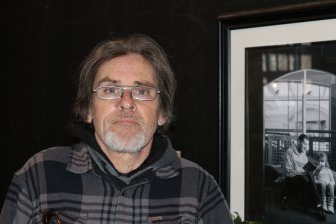If not here, then where? The question frequently arises when it comes to homeless encampments and seems not to have an easy answer while the country deals with the housing crisis.

On Monday, residents of an encampment at Milligan’s Park in Barrie, Ont., were issued a bylaw violation notice for camping in a public park without authority and placing debris on city property.
The roughly 13 people in the encampment were given 24 hours to pack up and move.
However, with no other options and having already moved the site previously, those in the encampment found themselves looking into their legal options.
That is when Christine Nayler, co-founder and director of Ryan’s Hope, an organization that advocates and provides support for people with substance use issues and experiencing homelessness, called York Region Community Legal Clinic.
“It’s very, very sad, and it’s just misinformed, and it’s not helpful. Where does the city want them to go?” Nayler asks.
Jeff Schlemmer, executive director of the legal clinic, says several cases involving encampments in the last few years have “clarified the rules,” adding that municipalities cannot remove people without providing them with adequate options.
“The case law is consistent; there are cases in Kingston and Waterloo in the last couple of years where the court has refused to grant an injunction to the municipality to allow them to evict encampment residents, and there was one in Toronto and one in Hamilton where they were allowed to evict because they found that there were adequate, accessible alternative accommodations.”
Schlemmer sent a cease and desist letter to the city outlining that the plan to remove those living in the park would go against similar court decisions in other communities.
“Given wholly inadequate ODSP (Ontario Disability Support Program) and OW (Ontario Works) shelter allowances paid to Ontario’s disabled citizens and the substantial increase in rents, making it virtually impossible for them to find rental accommodation, homelessness is predicted to continue to increase for the foreseeable future,” Schlemmer wrote. “A practical plan is needed beyond simply evicting homeless citizens from encampments.”
In response to his letter, the City of Barrie said in a statement Tuesday that “given the Ontario Court decisions and the lack of available shelter space at this time, (it) is not proceeding with evictions. However, Municipal Law Enforcement staff are advising individuals when their actions or behaviours are contrary to municipal bylaws.”
The city says it has received complaints from neighbouring residents/property owners concerning the debris and activities occurring in Milligan’s Park and Pond that are contrary to the city’s bylaws.
Last Friday night, city staff reported a fire at an encampment in another area of Milligan’s Park and Pond, prompting them to investigate.
But advocates say what seems like a pause on the eviction doesn’t fix the underlying issues.
“We would like to see housing for everybody. We’d love to see everyone have a space or home, but obviously that takes a lot of time so it’s not going to happen overnight,” Nayler says.
Nayler says that in the interim, the city could help by setting up a garbage pickup time to give them a place to dispose of trash and provide access to washroom facilities and running water while they deal with a lack of housing options.
“I think that the city needs to stop feeding into the fear that people are having. It’s creating an us-and-them environment in our community, and that doesn’t help anybody in our community,” Nayler says.
Nayler says everyone is struggling with the high cost of living, adding that we need to come together as a community to support one another instead of being divided.
One of the encampment residents, Jay Carr, 45, says he has struggled with homelessness on and off since leaving the foster care system at 18. Being on Ontario disability, he says when his last relationship ended, he could not afford a place of his own, so he started living in the park around a year ago.
He says he and others were warned by city staff before they had to move, and not knowing they had another choice, they packed up and moved to another location.
He is frustrated by the response and wants more services to help them instead of just trying to move them from one location to the next.
“The sad part is we get judged by a lot of people. The stigmatism that they have against the homeless is insane. We can’t afford it like a lot of people can,” Carr says.
Carr says the options for what he can afford are limited and hard to find, often involving living with multiple people. With a lack of options, he feels more comfortable living in the tent.
He says finding a safe option is made more difficult with his severe asthma, knowing that shared accommodation or apartment buildings can have animals, which trigger his allergies.
Carr wants more services to help people and more stable and affordable housing options.
The situation involving encampments and public safety concerns is playing out throughout the province.
Schlemmer pointed to a situation in Sarnia, Ont., where councillors recently decided not to remove a homeless encampment after advice from lawyers.
In Peterborough, the city launched its own tiny house community to address homelessness, and other communities are exploring similar options.
Despite ongoing housing issues, Simcoe County, which oversees homeless and housing programs for communities including Barrie, is taking steps to try to get people permanently housed.
The county is expanding its rapid rehousing program, which involves setting up a temporary site with trailers and support workers available to work with residents to find permanent housing. So far, they have one site that will be targeted at helping homeless youth in Orillia, with plans to run two other communities.
When the initiative was trialled in Barrie last year, it resulted in 90 per cent of participants being permanently housed.






Comments